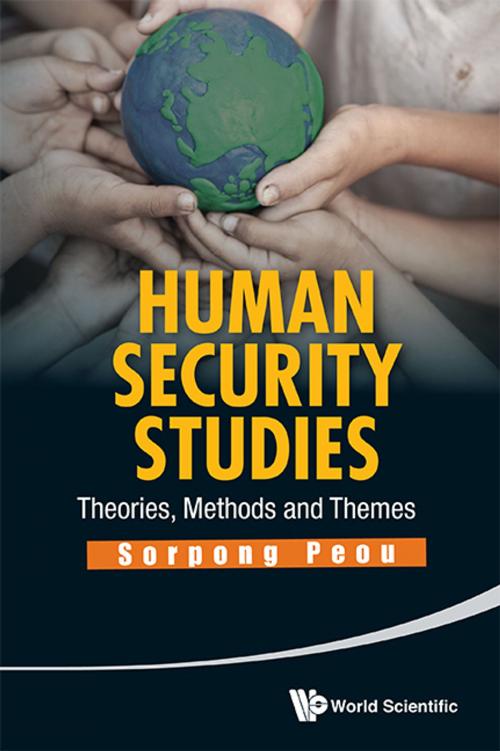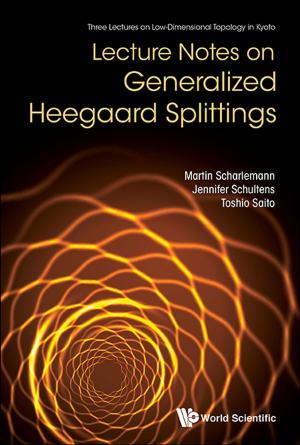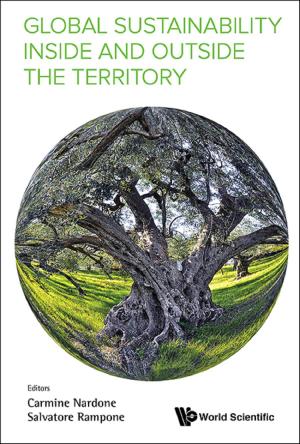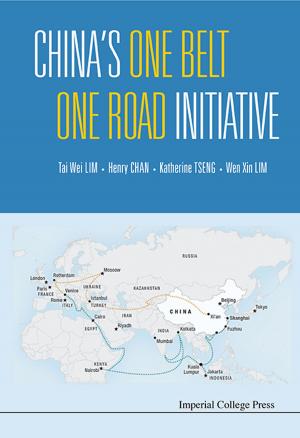Human Security Studies
Theories, Methods and Themes
Nonfiction, Social & Cultural Studies, Political Science, International, International Relations, Social Science, Anthropology| Author: | Sorpong Peou | ISBN: | 9789814440479 |
| Publisher: | World Scientific Publishing Company | Publication: | March 31, 2014 |
| Imprint: | WSPC | Language: | English |
| Author: | Sorpong Peou |
| ISBN: | 9789814440479 |
| Publisher: | World Scientific Publishing Company |
| Publication: | March 31, 2014 |
| Imprint: | WSPC |
| Language: | English |
Human Security Studies: Theories, Methods and Themes examines the concept of human security from different theoretical and methodological perspectives and shows how they help shed light on the different themes of global intervention. Liberal perspectives, represented by global legalism and developmentalism, share the optimism that human security can be ensured and enhanced through strengthening global governance. Realists remain skeptical about this liberal vision. While also critical of the liberal promise, critical theorists and feminists offer radical perspectives on human security. All these perspectives help explain the challenges of military intervention for human protection, micro-disarmament, international criminal justice, smart sanctions, human rights and democracy promotion, and human development.
Contents:
-
Introduction
-
Part I: Conceptual, Theoretical and Methodological Issues:
- What Human Security Is and What It Is Not
- Liberal Globalists' Optimistic Perspectives
- Political Realists' Skeptical Perspectives
- Critical Theorists' Radical Perspectives
- Feminists' Critical Perspectives
- Methodological Perspectives
-
Part II: Themes and Theoretical Perspectives:
- Military Intervention for Human Protection
- Micro-Arms Regulation and Micro-Disarmament
- ‘Smart’ Sanctions: Still ‘Dumb’
- Global Criminal Justice
- Human Rights and Democracy Promotion
- Human Development and Empowerment
-
Conclusions: Toward a More Realistic World Order for Humanity
Readership: Advanced undergraduate and graduate students in political science and international relations; policy makers in the defence and foreign affairs ministries; legal professionals.
Key Features:
- Discusses human security from different theoretical perspectives
- Reviews methods of analysis that proponents of human security have used
- Focuses on controversial policy instruments, such as humanitarian intervention, micro-disarmament, sanctions, international criminal justice, democracy and human rights promotion and human development
Human Security Studies: Theories, Methods and Themes examines the concept of human security from different theoretical and methodological perspectives and shows how they help shed light on the different themes of global intervention. Liberal perspectives, represented by global legalism and developmentalism, share the optimism that human security can be ensured and enhanced through strengthening global governance. Realists remain skeptical about this liberal vision. While also critical of the liberal promise, critical theorists and feminists offer radical perspectives on human security. All these perspectives help explain the challenges of military intervention for human protection, micro-disarmament, international criminal justice, smart sanctions, human rights and democracy promotion, and human development.
Contents:
-
Introduction
-
Part I: Conceptual, Theoretical and Methodological Issues:
- What Human Security Is and What It Is Not
- Liberal Globalists' Optimistic Perspectives
- Political Realists' Skeptical Perspectives
- Critical Theorists' Radical Perspectives
- Feminists' Critical Perspectives
- Methodological Perspectives
-
Part II: Themes and Theoretical Perspectives:
- Military Intervention for Human Protection
- Micro-Arms Regulation and Micro-Disarmament
- ‘Smart’ Sanctions: Still ‘Dumb’
- Global Criminal Justice
- Human Rights and Democracy Promotion
- Human Development and Empowerment
-
Conclusions: Toward a More Realistic World Order for Humanity
Readership: Advanced undergraduate and graduate students in political science and international relations; policy makers in the defence and foreign affairs ministries; legal professionals.
Key Features:
- Discusses human security from different theoretical perspectives
- Reviews methods of analysis that proponents of human security have used
- Focuses on controversial policy instruments, such as humanitarian intervention, micro-disarmament, sanctions, international criminal justice, democracy and human rights promotion and human development















